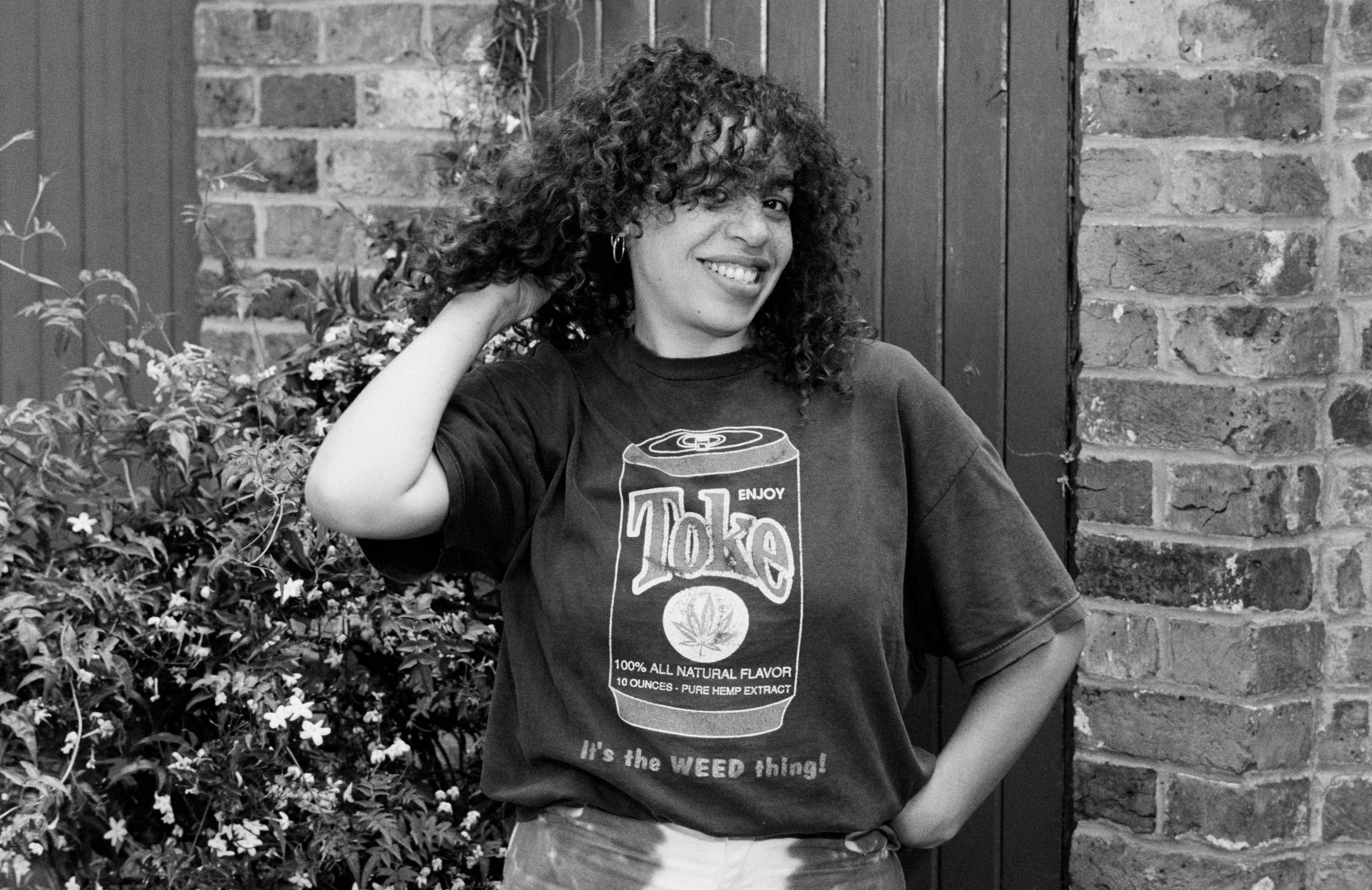A Chat With Martine Rose

Next door is only a footstep away – particularly in jam-packed 21st-century London, where the visionary menswear designer Martine Rose eschews conventional fashion show venues in favour of neighbourhood hubbub, hosting community-inclusive presentations of her covetable streetwear in cul-de-sacs and climbing halls. It’s all in the spirit of Martine’s knack for taking the ordinary and making it extraordinary. Who better, then, than Martine, 40, to help us ponder the vital business of successful togetherness, asks Mark Smith.
Mark Smith: Who were your neighbours as a child, Martine?
Martine Rose: I was born in Bristol – my dad was working up there at the time – but I grew up in Croydon in South London. During those first few years in Bristol we lived on quite a strange suburban close, and looking back now with an adult’s perspective it was all a bit twitchy curtain, pampas grass – there were definitely parties like that, throwing your keys in the bowl...
MS: No! The full-on wife-swapping scene?
MR: I think so, yes. Everyone was extremely nice to us as a family, and my parents made good friendships there, some of which endured. But many, many years later – long after we’d moved away, one bloke found the guts to admit to my dad that when the residents first found out a black family was moving in, they’d started a petition to try to prevent it.
MS: And this must have been – what – the 1980s?
MR: Yes. Sounds more like something from the 1950s, doesn’t it? As a mixed couple – as a black man and a white woman – my parents were quite attuned to intolerance and they had to have pretty thick skin. Even so, an actual petition is…
MS: Astonishing.
MR: I think they felt embarrassed about it once they met us, which is why they were all so welcoming.
“The Promising Britain collection was a rallying cry to say, I know we can do better than this.”
MS: Who have been your all-time favourite neighbours?
MR: About five years ago, I lived on Gore Road, a lovely street running alongside Victoria Park in east London. To look at those houses and the location you’d assume they belong to the super-rich, but actually they’re housing association, and most of the residents have lived there their whole lives. I lived at number 85, and when my daughter was born I had little old ladies from as far away as number nine knocking on my door, pressing pound coins into my hands and telling me to open a little account for her, which I did.
MS: They knew you well, presumably?
MR: No, they’d just seen us around and wanted us to know we were part of the fold. It was old London, a bit like the cul-de-sac in Kentish Town where we did the Martine Rose Spring/Summer 2019 show a few years ago. My stylist Tam recommended that street because her sister lives there and it’s such a close community. I think cul-de-sacs have a particular kind of solidarity – you look towards each other a bit more, don’t you.
MS: Was it tough, convincing them to let you host a fashion show on their doorsteps?
MR: It was at first, because they thought it was going to be like Notting Hill Carnival; that it was going to be burger vans and people pissing in their front gardens.
MS: How did you win them over?
MR: We went round to every house and gave everyone a pair of Nikes. Suddenly they were so on board, they were like, Oh, you should have said. Lovely, we love it!
MS: You seem to understand your customer, Martine.
MR: Yes, but in the end, the show was just such a joyful experience. It’s like when I did the show at my daughter’s school. When you’re working in fashion, it’s so easy to become spoiled or jaded. If you involve a completely new kind of audience, you’re suddenly reminded of how special it all is, that it’s not normal, that you’re hosting a 10-minute celebration.

MS: What about where you live now, what’s your approach to maintaining good neighbourly relations?
MR: People live tooth-to-jowl in London, so we’re bound to annoy each other. If my neighbour’s cranked up her music late into the night, I’ll tend to think, that’ll come in handy in a few weeks when I need a favour. I do think it’s helpful to think in terms of give and take. And to pick your battles very carefully.
MS: What about neighbours in other contexts? Do you strike up conversations with people on buses, on planes, at shows?
MR: Oh yes. I am an informal person right across the board. Actually, I’ve been known to be way too informal. With Karl Lagerfeld, I went straight in for a cuddle. He wasn’t impressed.
MS: Oh dear.
MR: I actually think I might have hastened the end, slightly.
MS: Promising Britain, your clown-themed Spring/Summer collection, was a sardonic take on Brexit. How are you feeling now about the UK’s relationship with its European neighbours?
MR: I hope it doesn’t sound hopelessly naïve to say that I believe in people, and that the Promising Britain collection was intended as a rallying cry. It was meant to say, I know we’re better than this, I know we can do better than this. Fundamentally, I think being a good neighbour is mostly about not being a dick, isn’t it?
Martine wears her own jewellery and clothes: a black vintage T-shirt and white cow-print jeans by ECKHAUS LATTA.
Interview by Mark Smith
Photography by Esther Theaker
Related Reading:
A Family Affair: Guest Edited By The Gentlewoman
A Family Affair: Guest Edited By The British Fashion Council
A Family Affair: Guest Edited By Fantastic Man